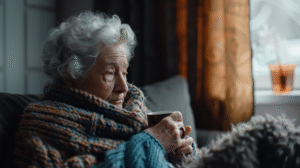 As the weather turns cold, the chance of a weather-related power outage increases. An extended electrical outage can disrupt communications, water, and transportation. It can also close retail businesses, grocery stores, gas stations, ATMs, banks, and other services. In the home, a lengthy power outage can cause food and medication spoilage and water contamination and can prevent the use of medical devices.
As the weather turns cold, the chance of a weather-related power outage increases. An extended electrical outage can disrupt communications, water, and transportation. It can also close retail businesses, grocery stores, gas stations, ATMs, banks, and other services. In the home, a lengthy power outage can cause food and medication spoilage and water contamination and can prevent the use of medical devices.
The U.S. Government emergency preparedness website, www.ready.gov, offers the following tips during a power outage.
- Keep freezers and refrigerators closed.
- Use a generator, but only outdoors and away from windows.
- Do not use a gas stove or oven to heat your home.
- Disconnect appliances and electronics to avoid damage from electrical surges.
- Have alternate plans for refrigerating medicines or using power-dependent medical devices.
- Check with local officials about heating and cooling locations open near you.
For individuals who take refrigerated medications, it’s a good idea to speak with your medical provider about a power outage plan for refrigerated medicines. Find out how long medication can be stored at higher temperatures and get specific guidance for any medications that are critical for life.
For people who depend on powered medical devices (electric wheelchairs, adjustable beds, oxygen supplies, etc.), contact the company that provides the device for recommendations about backup options. For anyone who uses oxygen, ask your provider to set up one or more large, compressed oxygen cylinders in your home for emergencies. Learn how long the cylinders last and how to switch from an oxygen concentrator to emergency oxygen.
National Grid has a “Notice of Life-Sustaining Equipment” form that should be submitted for anyone who might be endangered if their medical equipment loses power. In addition, anyone can register for email or phone alerts to receive updates about power outages in their neighborhood. Go to https://www.nationalgridus.com/MA-Home/Storm-Safety or call 1-800-322-3223 to learn more. If you are not a National Grid customer, it would be a good idea to contact your utility company to see if they have a similar program.
When a storm is approaching, be sure to fully charge your devices—cellphones, tablets, e-readers, etc. Portable battery packs can be purchased to help extend your battery life. If you have a battery pack, be sure to fully charge it. Uninterruptible power supply (UPS) power sources can also be used to recharge a cellphone or tablet. Make sure that the batteries in your flashlight are fresh and you have a good supply of extra batteries. Battery-operated holiday lights can provide light in dark rooms and hallways and last a good while on just a couple of batteries. If your refrigerator and/or freezer are mostly empty, fill the empty space with containers of water to freeze or chill. A well-packed refrigerator/freezer will stay cold longer than an empty one. Have several days worth of food available that do not require cooking and refrigeration and bottled water. If you use well water, filling the bathtub before a storm will give you some water to flush the toilet.
During a power outage, it’s a good idea to unplug electrical devices. When the power is restored, it might return with a surge that can damage plugged in items. As much as possible, keep freezer and refrigerator doors closed.
After the power is restored, check your refrigerator. Check temperatures with a thermometer, and discard food if the temperature is 40 degrees or higher. If you need to discard refrigerated medications, contact your medical provider or pharmacist immediately to arrange for refills.
During any power outage, remember to check in with your older friends and family to ensure that they have everything they need to be safe and healthy.
